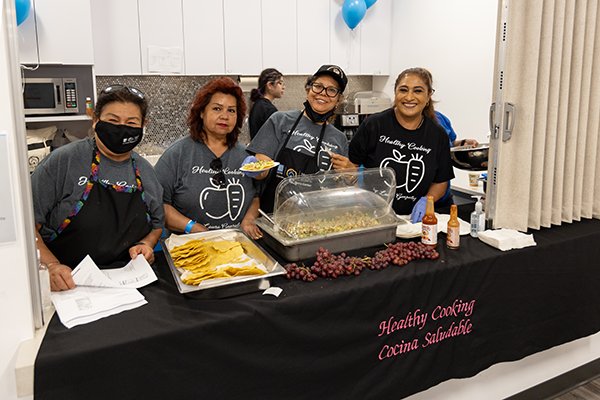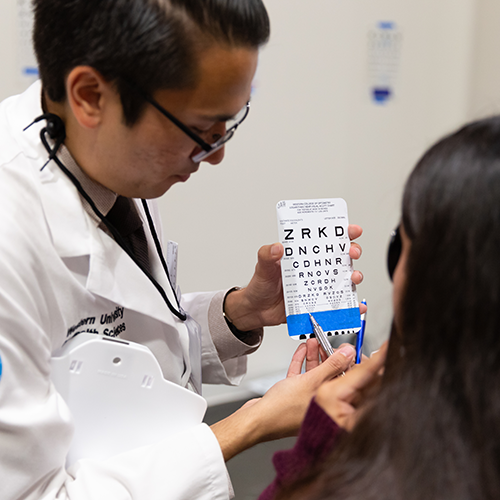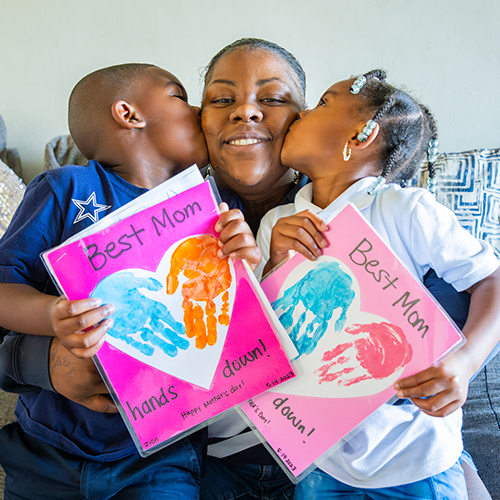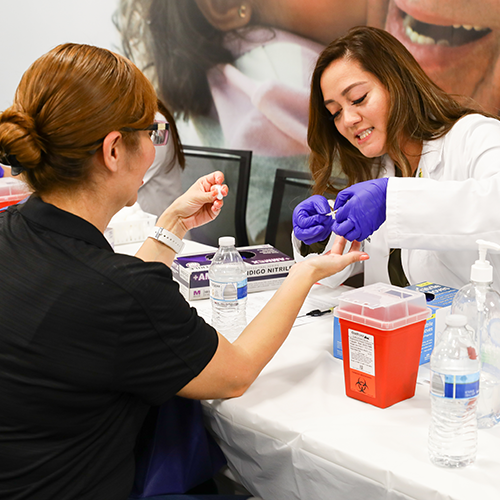 Studies show that there have been improvements in the overall health of the country, but racial or ethnic minorities and income insecure individuals still consistently experience a lower quality of health care.
Studies show that there have been improvements in the overall health of the country, but racial or ethnic minorities and income insecure individuals still consistently experience a lower quality of health care.
Through the CHIF program, L.A. Care has invested more than $28 million into programs that aim to rectify the effects of arcane and biased policies. L.A. Care has invested to:
- Enhance equity
- Resolve social issues
- Advance systemic justice
This includes efforts dedicated toward assisting people with applications for Cal Fresh and the Earned Income Tax Credit (EITC).
One in five people in Los Angeles County currently struggles with food insecurity – that means more than two million people in the county lack consistent access to enough food to lead an active, healthy life.
“While more than one million L.A. County residents participate in CalFresh monthly, it’s estimated that is only 66 percent of those who qualify – more than 500,000 others – could get the food they need to stay healthy. L.A. Care recognizes that health care is about more than just a plastic card in your wallet. The plan is determined to do all it can to help get more families on CalFresh and ensure more families are getting the nutritious foods they need.”
— JOHN BAACKES, L.A. CARE CEO
To help address this vital social need, L.A. Care has awarded $6.5 million to help thousands of low-income individuals and families get benefits through the Supplemental Nutrition Assistance Program (SNAP), called CalFresh in California, and EITC.
These grants are a part of L.A. Care’s Community Wellness Initiative, which was launched in 2015. Since its launch, the initiative has helped more than 22,000 eligible households, which means over 66,000 individuals received application assistance for CalFresh and the Earned Income Tax Credit.
DIVE DEEPER: GRANTEE SUCCESS STORY
L.A. Care grantee Maternal and Child Health Access (MCHA) was able to help hundreds of clients like Ms. M get CalFresh services. Ms. M had a household of eight and had just had a baby. Her husband was laid off from work due to the pandemic, and he was their sole provider. Ms. M did not want to apply for CalFresh benefits because she had a bad experience many years ago and did not want to be put through that again.
MCHA staff explained to her that they assist with the enrollment process and helped her address the questions that she had. Her case was approved within seven days! She was extremely grateful for the help, and said she would not have applied if she did not have someone guiding her through the process.
More Related Stories

Supporting the Safety Net Is Health Care

Housing is Health Care
Funding permanent supportive housing for those experiencing homelessness →
